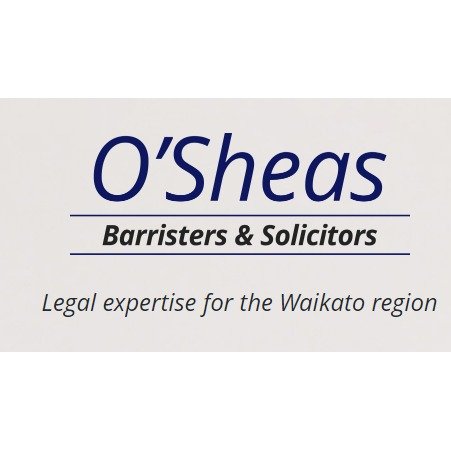Best State, Local, and Municipal Law Lawyers in New Zealand
Share your needs with us, get contacted by law firms.
Free. Takes 2 min.
Or refine your search by selecting a city:
List of the best lawyers in New Zealand
About State, Local, and Municipal Law in New Zealand
State, Local, and Municipal Law in New Zealand encompasses a range of legal processes and regulations that govern the functioning of local authorities and regional councils. These laws are designed to structure and manage local government operations, ensuring they meet the needs of their communities effectively. This area of law includes everything from land use and zoning, resource management, and local governance, to bylaw enforcement, infrastructure development, and public service delivery.
Why You May Need a Lawyer
There are several situations where you might require legal assistance in the realm of State, Local, and Municipal Law in New Zealand. Common instances include disputes over zoning and land use, challenges to local government decisions, questions about building permits, issues related to resource consents, and disputes arising from property taxes and rates. A lawyer specializing in this field can help navigate the complexities of local legal frameworks, ensuring compliance and effective resolution of any disputes or issues you may encounter.
Local Laws Overview
Local laws in New Zealand are tailored to address the specific needs and circumstances of communities across various regions. Key aspects include the Resource Management Act, which governs land use and environmental protection, and the Local Government Act, which outlines the responsibilities and powers of local councils. Additionally, each municipality may have its own bylaws that regulate issues such as noise control, waste management, parking, and building codes. Understanding these laws is crucial for residents and business owners to ensure compliance and avoid potential legal disputes.
Frequently Asked Questions
What is the role of local councils in New Zealand?
Local councils are responsible for making decisions on a wide range of community issues, including infrastructure, environmental management, local planning, and public services. They ensure local needs are met and facilitate community development.
What is the Resource Management Act?
The Resource Management Act 1991 (RMA) is a key piece of environmental legislation in New Zealand that regulates the use of natural and physical resources such as land, air, and water. It aims to promote sustainable management of resources for future generations.
How do zoning laws affect me?
Zoning laws determine how land in different parts of a municipality can be used, whether for residential, commercial, industrial, or recreational purposes. They can affect property values, investment opportunities, and your ability to develop or modify land.
How can I challenge a local government decision?
To challenge a decision, you typically start by reviewing the local council's procedures for objections and appeals. Legal advice may be beneficial to navigate this process, especially if the case involves complex legal principles or significant impacts.
What are bylaws?
Bylaws are rules made by a local council that govern specific issues within its area. These may cover a range of local matters such as noise control, water restrictions, and animal control, designed to maintain order and public safety.
Do I need a permit for home renovations?
Whether you need a permit depends on the scope of the renovations. Generally, significant changes to a structure will require a building consent. It is advisable to check with your local council before commencing work.
What is a rates notice?
A rates notice is a bill sent by the local council to property owners, detailing the amount they must pay in property rates. Rates are used to fund council services like water supply, roads, and waste management.
How can environmental concerns be addressed under local laws?
Environmental concerns can be addressed through the Resource Management Act and local policies. Councils are responsible for creating and enforcing plans that balance development with environmental protection.
Can local councils create their own laws?
Local councils have the power to create bylaws specific to their regions. These bylaws must comply with national legislation and are subject to public consultation before being enacted.
What happens if I breach a bylaw?
If you breach a bylaw, the local council can issue warnings, fines, or other enforcement actions. It's important to understand and comply with local bylaws to avoid penalties.
Additional Resources
For further assistance, consider exploring resources from the following organizations:
- The Ministry of Housing and Urban Development (HUD)
- The Local Government New Zealand (LGNZ)
- The Department of Internal Affairs (DIA)
- The New Zealand Law Society
- Citizen's Advice Bureau
Next Steps
If you need legal assistance in matters relating to State, Local, and Municipal Law in New Zealand, consider reaching out to a specialized lawyer. You can begin by consulting the New Zealand Law Society to find a suitable legal professional. Additionally, attending local council meetings and engaging with community discussions can provide valuable insights and help you stay informed about local legal matters.
Lawzana helps you find the best lawyers and law firms in New Zealand through a curated and pre-screened list of qualified legal professionals. Our platform offers rankings and detailed profiles of attorneys and law firms, allowing you to compare based on practice areas, including State, Local, and Municipal Law, experience, and client feedback.
Each profile includes a description of the firm's areas of practice, client reviews, team members and partners, year of establishment, spoken languages, office locations, contact information, social media presence, and any published articles or resources. Most firms on our platform speak English and are experienced in both local and international legal matters.
Get a quote from top-rated law firms in New Zealand — quickly, securely, and without unnecessary hassle.
Disclaimer:
The information provided on this page is for general informational purposes only and does not constitute legal advice. While we strive to ensure the accuracy and relevance of the content, legal information may change over time, and interpretations of the law can vary. You should always consult with a qualified legal professional for advice specific to your situation.
We disclaim all liability for actions taken or not taken based on the content of this page. If you believe any information is incorrect or outdated, please contact us, and we will review and update it where appropriate.
Browse state, local, and municipal law law firms by city in New Zealand
Refine your search by selecting a city.













